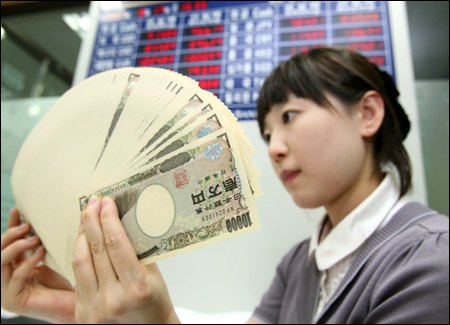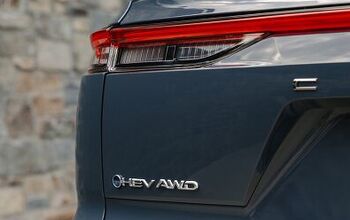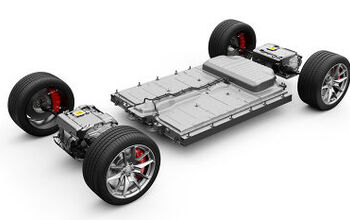Strong Yen Drives Japanese Auto Makers Out Of The Country

If anybody will again blather about a “weak yen” that has been “manipulated by the Japanese government,” then I’ll personally come visit, with the intent to insert a sock in the mouth. For reasons explicable only to forex mavens, the currency of the economic basked case Japan keeps on getting stronger. Japan’s car manufacturers think this will continue, and they are taking precautions. More precisely, they are taking production out of Japan.
Japanese companies are getting ready for a dollar buying 90 yen and less in this fiscal year. (For those not versed in currencies: That’s a strong yen …) This would be a great time for American car makers to export to Japan – if the Japanese would just buy American cars.
For Japanese exporters, a strong yen is a disaster.
To counter this, Honda will increase the number of cars assembled in India, China and other emerging markets, says The Nikkei [sub] .
Mitsubishi will shift component manufacturing abroad.
Hirose Electric, maker of electronic parts, will increase their production abroad.
More companies are expected to follow. A big beneficiary will be China, as their currency is pegged against the dollar, alleviating any currency risk. Despite the rhetoric, this is not expected to change anytime soon, at least not in a drastic way.
Speaking of China, the critics of the dollar peg need to be careful of what they wish for: One reason for the humongous dollar reserves the Chinese hold is that they have to buy dollar-denominated securities to maintain the peg. With the peg gone, no pressure to buy dollars, and the dollar will get cheaper. Prices at Wal-Mart will rise, inflation will come knocking, while car exports to Japan will be even more attractive. If the darned Japanese would just take a liking to American cars.
Going up? Picture courtesy koreatimes.co.kr
Bertel Schmitt comes back to journalism after taking a 35 year break in advertising and marketing. He ran and owned advertising agencies in Duesseldorf, Germany, and New York City. Volkswagen A.G. was Bertel's most important corporate account. Schmitt's advertising and marketing career touched many corners of the industry with a special focus on automotive products and services. Since 2004, he lives in Japan and China with his wife <a href="http://www.tomokoandbertel.com"> Tomoko </a>. Bertel Schmitt is a founding board member of the <a href="http://www.offshoresuperseries.com"> Offshore Super Series </a>, an American offshore powerboat racing organization. He is co-owner of the racing team Typhoon.
More by Bertel Schmitt
Latest Car Reviews
Read moreLatest Product Reviews
Read moreRecent Comments
- ToolGuy TG likes price reductions.
- ToolGuy I could go for a Mustang with a Subaru powertrain. (Maybe some additional ground clearance.)
- ToolGuy Does Tim Healey care about TTAC? 😉
- ToolGuy I am slashing my food budget by 1%.
- ToolGuy TG grows skeptical about his government protecting him from bad decisions.


































Comments
Join the conversation
Exporting cars to Japan isn't a very promising prospect for anyone. A shrinking, aging population on a small, crowded set of islands hardly makes for an enticing target market. China, India, Eastern Europe, South America and even Africa are all far more interesting markets going forward than is Japan. BTW, these trends are also part of why the smart Japanese companies are essentially moving themselves off the islands piece by piece going forward.
I like to compare the yen with the US cent, not the dollar. The yen is hovering around parity with the cent, with 1 yen = 1.0594 cents. The yen was once itself split into 100 sen, but these days, that would be as pointless as splitting a penny 100 times. Would it make sense to rescale the yen so that a yen became a sen, 100 sen made a yen, and 1Y equaled +/- $1? Or create a new unit - 'hyakuyen', made of 100Y its current value, which would equal +/- $1. Ah whatever. I guess it won't change the fact when I visit Japan this summer with my dollars, I'm probably gonna get hosed.